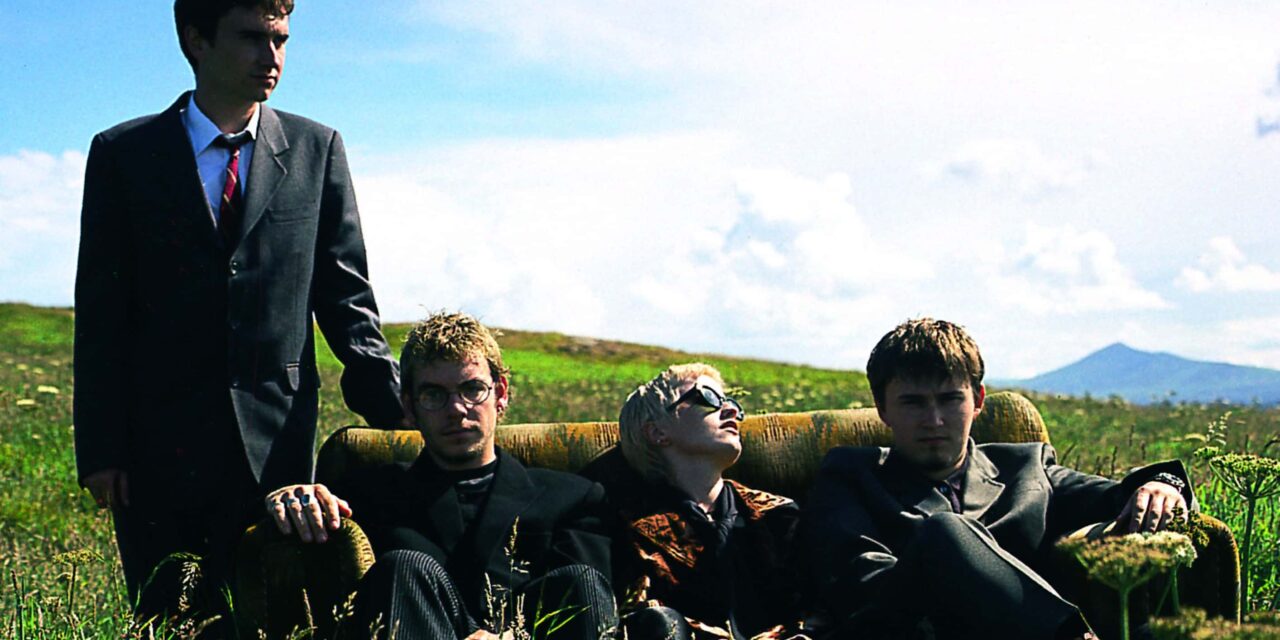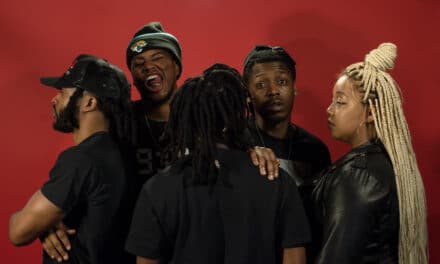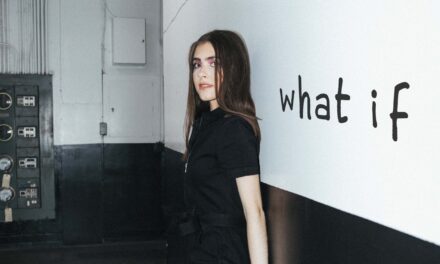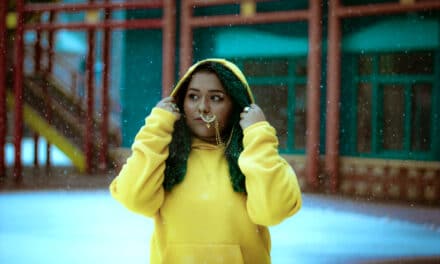all images by Andy Earl
There are few albums that can claim to have permanently carved their initials into the collective memory of pop culture — but The Cranberries’ No Need To Argue is one of them. This year marks its 30th anniversary, and to celebrate, the band is releasing a lovingly curated, limited-edition 3LP deluxe set on June 27 via Island/UMe — with even more deluxe formats to follow in August.
“It’s hard to believe it’s been 30 years,” drummer Fergal Lawler reflects. “Sometimes it feels like just a few years ago, and sometimes it feels like an eternity.”
Originally released October 3, 1994, No Need To Argue was the record that vaulted the Irish quartet from indie darlings into global icons. Building on the success of their debut Everybody Else Is Doing It, So Why Can’t We?, the band — fronted by the singular voice of the late Dolores O’Riordan — delivered an album that was both politically fearless and melodically unforgettable.
“There was no ‘difficult second album syndrome,’” Lawler remembers. “Dolores was bursting with ideas — songs like ‘Zombie’ were already getting incredible reactions on tour before we even recorded them. By the second chorus, you could feel the whole room light up.”
Of course, No Need To Argue is synonymous with “Zombie,” a song written in protest of the violence of The Troubles in Northern Ireland. Delivered with fury, fragility, and utter conviction, O’Riordan’s howl still sends chills. “People say we shouldn’t have done ‘Zombie,’ but excuse me — I’m Irish. I’m a human being,” she once said. “I’m allowed to have feelings about the North. I express those feelings in my songs. It’s up to people whether they want to listen or not.”
For the 30th anniversary, the band has unearthed rarities that remind us why this album remains evergreen. The 3LP package includes a previously unreleased “Zombie” demo, live recordings from Woodstock ‘94, and their celebrated MTV Unplugged session from 1995. “Our songs didn’t need all the bells and whistles,” says Lawler of the stripped-down set. “They worked just as well acoustically, maybe even better.”
There are also two remixes by Iain Cook of CHVRCHES — a pulsing, club-ready “Zombie” and a dreamy reimagining of “Ode To My Family.” Lawler recounts how Cook initially worried about touching such a revered song. “I told him, don’t overthink it — just go for it. And he did. The result is brilliant.”
The album’s resonance over three decades is staggering. “Zombie” remains a cultural touchstone, its video clocking 1.6 billion views on YouTube. Covered by Miley Cyrus, sampled by Eminem, and even adopted as an Irish rugby anthem, its tanks and bombs and guns still feel relevant — uncomfortably so.
But No Need To Argue was never just about its most famous track. Songs like “Ode To My Family,” “I Can’t Be With You,” and “Dreaming My Dreams” have appeared in everything from Family Guy to Pitch Perfect 3, Yellowjackets, and The Office. This was music that slipped into the cracks of everyday life — melancholy yet universal.
For guitarist Noel Hogan, the memory of making the record is one of camaraderie and confidence. “Call it youthful arrogance, but we knew the songs were good and we couldn’t wait to get them down,” he says. Producer Stephen Street, who called the album “a beautiful collection of people working together with the right intentions,” captured that moment perfectly.
At the heart of it all is the unflinching honesty that O’Riordan herself once pinpointed as the reason fans kept coming back: “Some fans say, ‘Aren’t you embarrassed singing about such things?’ and I say, ‘That’s what makes me what I am. I’m not going to change for anyone.’”
Thirty years later, that honesty still cuts through. No Need To Argue remains both a time capsule and a living, breathing statement.
The limited 3LP deluxe edition is available for pre-order now, with release set for June 27. A 2LP Deluxe, 2CD Deluxe, single LP, single CD, and Digital Deluxe follow on August 15.
Even now, you can’t help but hear that “Doo doo doo” in your head — and you probably wouldn’t change a thing.
It’s wild to think it’s been 30 years since “Zombie” first rattled our collective soul. When you listen back to that original demo, what feelings surface for you now—grief, pride, nostalgia, all of the above?
When I listen back to that original demo, I get a strong feeling of nostalgia. It transports me back in time. It’s a very similar feeling to looking at an old photograph.
Dolores once said she wasn’t embarrassed to sing about what made her who she was. How did that unapologetic vulnerability shape the band’s energy during the “No Need to Argue” era—and do you think that kind of raw honesty could survive the algorithm-driven music landscape of today?
I think it is very important as an artist to believe in what you do and to stand by those beliefs one hundred per cent. During the “No Need to Argue” period, I believe that the band were on a roll and we really worked hard to keep that momentum going.
Yes, I would hope that Dolores’ raw honesty could stand out from the crowd in today’s algorithm-driven landscape.
The phrase “no difficult second album syndrome” feels rare—especially when the first one was a global phenomenon. What was it about that time that made everything just… flow? Divine timing, youthful stubbornness, Dolores’ ferocity?
We had been working very hard, touring a lot and doing lots of promotion before the first album “Everybody Else…” and it took a while before that album became successful. I think when we were finally rewarded for all our hard work, we really appreciated it and felt encouraged to continue to follow our hearts and give our all to making the band a success.
There were lots of factors that contributed to “No Need to Argue” being so successful. It was a case of all the pieces falling into place at that particular moment in time.
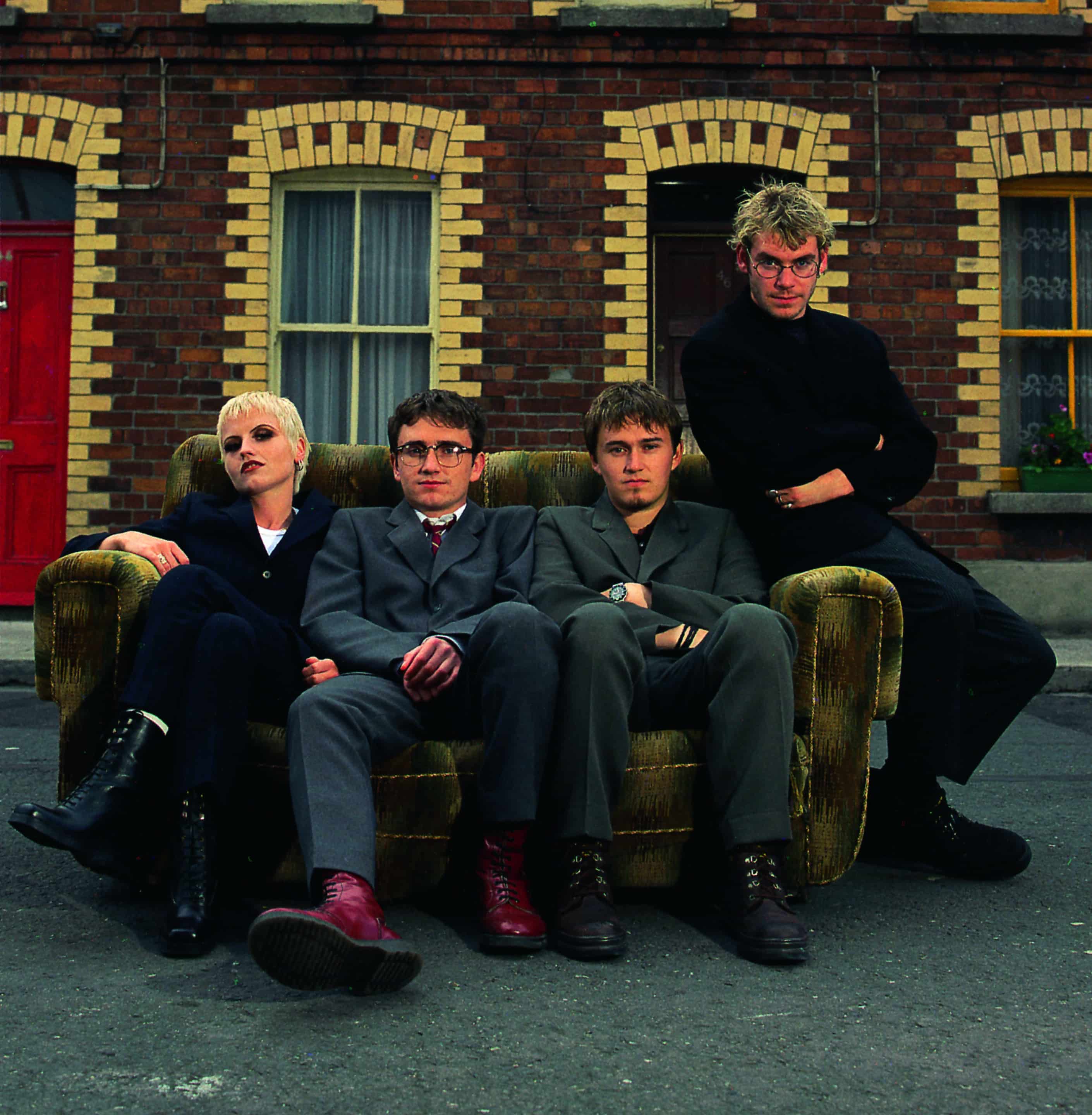
The legacy of “Zombie” has only intensified—from being belted out by rugby stadiums to being covered by Miley Cyrus and sampled by Eminem. How do you personally navigate the weight of that song’s cultural afterlife?
I feel extremely proud. I wouldn’t say that I feel any ‘weight’ as such.
Let’s talk remixes—how did Iain Cook’s dancefloor version of “Zombie” and dreamy “Ode To My Family” come about? Was it surreal to hear your own songs reshaped through someone else’s emotional and sonic lens?
Iain’s manager contacted our record company and said that he would be interested in doing some remixes. We were fans of CHVRCHES music, so were open to the idea.
Iain and myself had some discussions and he assured me that the songs, and especially Dolores’ vocals, would be treated with the utmost respect.
What was it like watching songs like “Dreaming My Dreams” and “Ridiculous Thoughts” go from backstage scribbles to setlist staples—even before they were officially recorded? Did live audience energy ever shape how a song ultimately sounded in the studio?
Songs tend to evolve over time, beginning with a few chords that either Dolores or Noel would introduce to the band either in the rehearsal room or at soundcheck. We would then add our individual parts and keep jamming the song over and over until we all felt that it was ready to play live.
The studio recordings and the live versions of songs always have a different feeling. I think it’s because in a live situation there is the energy of the band and audience having a shared emotional experience at that moment, whereas the studio version is a snapshot in time that you can return to over and over again.

The MTV Unplugged session was iconic. Did stripping the songs down ever make you hear them differently—maybe even more intimately?
Yes, definitely. Since the very beginning of The Cranberries, we had always played acoustic versions of songs either in radio stations or record shop performances. Acoustic versions always sound very different compared to a full on electric performance.
You mentioned messing around with Stephen Street’s camcorder during recording—what would we see in that footage? Chaos, goofiness, pre-Instagram rockstar reality?
Oh, goofiness for sure ! We got our hands on Stephen’s camcorder and used it to entertain ourselves by making some comedy sketches during downtime.
“No Need To Argue” has shown up in everything from Clueless to Yellowjackets to Family Guy. Do you ever get texts from friends like “hey, your song’s in this totally random scene with Peter Griffin…”?
Yes, totally. It’s always a proud moment. A lot of the time, I forget that we have approved a certain song and then I’ll be watching a movie or tv show and get a nice surprise and go “oh yeah, I forgot about that one”.
Thirty years on, what do you think Dolores would say about the enduring fire of these songs? And what do you think she’d say to younger artists trying to write their own truth—especially women who are still told to tone it down?
Dolores would be very proud and appreciative of the fact that her songs are still having a powerful impact on the younger generation. Dolores always spoke her mind, so I am pretty sure she would encourage younger women who are being told to “tone it down” by saying something like “Fuck That! Write What You Want!”

